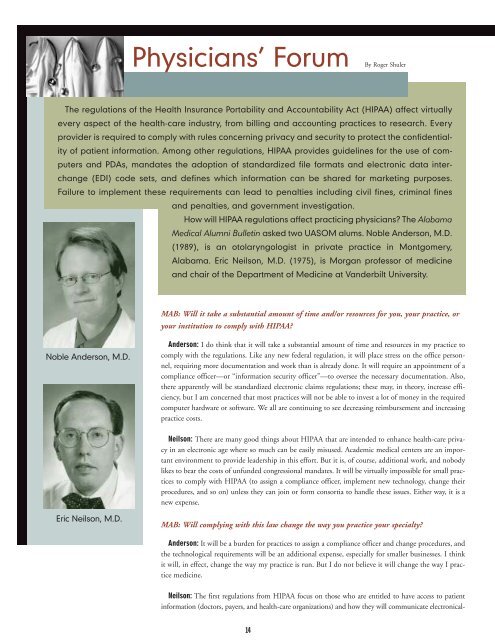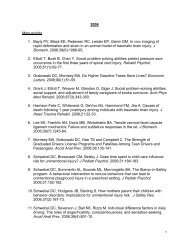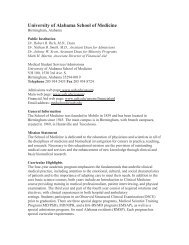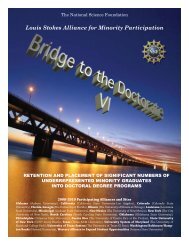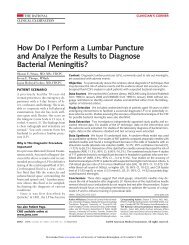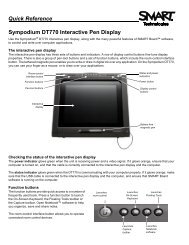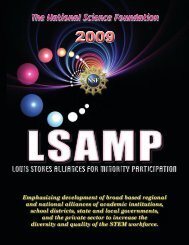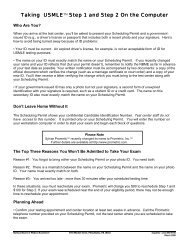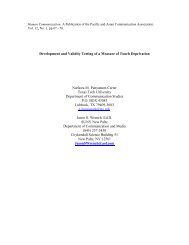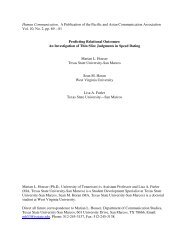In Pursuit of Precision - University of Alabama at Birmingham
In Pursuit of Precision - University of Alabama at Birmingham
In Pursuit of Precision - University of Alabama at Birmingham
Create successful ePaper yourself
Turn your PDF publications into a flip-book with our unique Google optimized e-Paper software.
Physicians’ Forum By<br />
Roger Shuler<br />
The regul<strong>at</strong>ions <strong>of</strong> the Health <strong>In</strong>surance Portability and Accountability Act (HIPAA) affect virtually<br />
every aspect <strong>of</strong> the health-care industry, from billing and accounting practices to research. Every<br />
provider is required to comply with rules concerning privacy and security to protect the confidentiality<br />
<strong>of</strong> p<strong>at</strong>ient inform<strong>at</strong>ion. Among other regul<strong>at</strong>ions, HIPAA provides guidelines for the use <strong>of</strong> computers<br />
and PDAs, mand<strong>at</strong>es the adoption <strong>of</strong> standardized file form<strong>at</strong>s and electronic d<strong>at</strong>a interchange<br />
(EDI) code sets, and defines which inform<strong>at</strong>ion can be shared for marketing purposes.<br />
Failure to implement these requirements can lead to penalties including civil fines, criminal fines<br />
and penalties, and government investig<strong>at</strong>ion.<br />
How will HIPAA regul<strong>at</strong>ions affect practicing physicians? The <strong>Alabama</strong><br />
Medical Alumni Bulletin asked two UASOM alums. Noble Anderson, M.D.<br />
(1989), is an otolaryngologist in priv<strong>at</strong>e practice in Montgomery,<br />
<strong>Alabama</strong>. Eric Neilson, M.D. (1975), is Morgan pr<strong>of</strong>essor <strong>of</strong> medicine<br />
and chair <strong>of</strong> the Department <strong>of</strong> Medicine <strong>at</strong> Vanderbilt <strong>University</strong>.<br />
MAB: Will it take a substantial amount <strong>of</strong> time and/or resources for you, your practice, or<br />
your institution to comply with HIPAA?<br />
Noble Anderson, M.D.<br />
Anderson: I do think th<strong>at</strong> it will take a substantial amount <strong>of</strong> time and resources in my practice to<br />
comply with the regul<strong>at</strong>ions. Like any new federal regul<strong>at</strong>ion, it will place stress on the <strong>of</strong>fice personnel,<br />
requiring more document<strong>at</strong>ion and work than is already done. It will require an appointment <strong>of</strong> a<br />
compliance <strong>of</strong>ficer—or “inform<strong>at</strong>ion security <strong>of</strong>ficer”—to oversee the necessary document<strong>at</strong>ion. Also,<br />
there apparently will be standardized electronic claims regul<strong>at</strong>ions; these may, in theory, increase efficiency,<br />
but I am concerned th<strong>at</strong> most practices will not be able to invest a lot <strong>of</strong> money in the required<br />
computer hardware or s<strong>of</strong>tware. We all are continuing to see decreasing reimbursement and increasing<br />
practice costs.<br />
Neilson: There are many good things about HIPAA th<strong>at</strong> are intended to enhance health-care privacy<br />
in an electronic age where so much can be easily misused. Academic medical centers are an important<br />
environment to provide leadership in this effort. But it is, <strong>of</strong> course, additional work, and nobody<br />
likes to bear the costs <strong>of</strong> unfunded congressional mand<strong>at</strong>es. It will be virtually impossible for small practices<br />
to comply with HIPAA (to assign a compliance <strong>of</strong>ficer, implement new technology, change their<br />
procedures, and so on) unless they can join or form consortia to handle these issues. Either way, it is a<br />
new expense.<br />
Eric Neilson, M.D.<br />
MAB: Will complying with this law change the way you practice your specialty?<br />
Anderson: It will be a burden for practices to assign a compliance <strong>of</strong>ficer and change procedures, and<br />
the technological requirements will be an additional expense, especially for smaller businesses. I think<br />
it will, in effect, change the way my practice is run. But I do not believe it will change the way I practice<br />
medicine.<br />
Neilson: The first regul<strong>at</strong>ions from HIPAA focus on those who are entitled to have access to p<strong>at</strong>ient<br />
inform<strong>at</strong>ion (doctors, payers, and health-care organiz<strong>at</strong>ions) and how they will communic<strong>at</strong>e electronical-<br />
14


